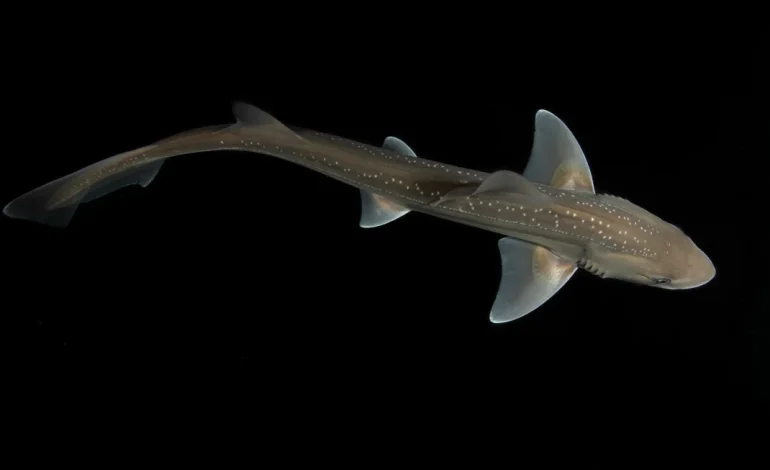Sharks have long been considered silent hunters, relying on stealth rather than sound to navigate and hunt, CNN reports.
Unlike many other fish, they lack the specialized sound-producing organs that facilitate vocal communication. However, a new study has challenged this assumption, revealing that rig sharks (Mustelus lenticulatus) may be capable of producing deliberate noises—similar to the popping sound of a balloon.
Published in the journal Royal Society Open Science, the study presents the first documented evidence of a shark species actively producing sound. The research team recorded rig sharks snapping their teeth together, creating clicking noises.
Dr. Carolin Nieder, the study’s lead author, first noticed an unusual clicking sound while conducting behavioral training experiments at the University of Auckland in 2021. Years later, she and her team confirmed the source by studying ten juvenile rig sharks in a controlled laboratory setting.
The researchers placed the sharks in tanks equipped with underwater microphones (hydrophones) and observed their behavior. They found that when the sharks were moved between tanks or gently handled, they snapped their strong, interlocking teeth together, producing distinct clicking sounds.
Each click was:
Extremely brief, lasting about 48 milliseconds—faster than a human blink.
Loud, reaching up to 156 decibels (comparable to a jet engine at takeoff).
Broad in frequency, spanning 2.4 to 18.5 kilohertz, some of which is within the human hearing range.
The clicks were most frequent when the sharks were first handled but became less common over time, suggesting the sounds may serve a specific purpose rather than being accidental.
Since rig sharks lack sound-producing organs, researchers concluded the clicks originate from their teeth snapping together—a behavior not previously documented in sharks.
The exact reason for these sounds remains uncertain, but researchers propose several theories:
A distress signal: The sharks may emit clicks when under stress, similar to other marine species that produce warning sounds.
A form of communication: Though sharks typically rely on body language and chemical signals, the sounds could play a role in social interactions.
A defensive mechanism: The clicks may serve as a deterrent or warning signal to predators or prey.
However, most of the recorded sounds fall outside of the rig shark’s own hearing range (which extends up to 800 hertz), making it unclear whether the clicks are meant for communication with other sharks.
With over 500 known species of sharks, researchers are now considering the possibility that other species might also have previously unnoticed sound-producing abilities.
“I think there is a chance other sharks are making similar noises,” Nieder said. “This documentation could help (us) start listening to sharks, and maybe we can learn more interesting things about their ecology and lifestyle.”
Because the study was conducted in a controlled laboratory setting, scientists are eager to investigate whether rig sharks produce these sounds in the wild—and under what conditions.
Shark communication has long been a mystery, but this study introduces exciting new possibilities.
“This study opens up a whole new possibility of communication via sound,” said Neil Hammerschlag, president of Atlantic Shark Expeditions.
While the clicking might simply be a response to handling, it raises important questions for future research.










The latest news in your social feeds
Subscribe to our social media platforms to stay tuned